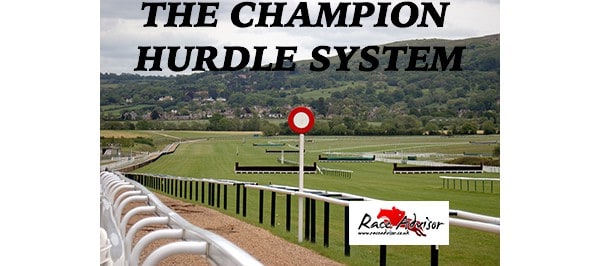The Champion Hurdle System

The Champion Hurdle is the premier event for hurdlers. In comparison to the Gold Cup, multiple winners are more common. For instance, Istabraq and Hardy Eustace have won the race more than once in recent years, but See You Then, Comedy of Errors, Night Nurse, Sea Pigeon, Monksfield, Persian War, Sir Ken, Hatton Grace are others that have scored on more than one occasion. The list is much longer than the one for the Gold Cup in which only Arkle, Cottages Rake, L’Escargot, and Best Mate have won the race on more than one occasion since the second world war.
Previous festival form counts a great deal in the Champion Hurdle. In total, 19% of all placed runners in my data sample had previously been placed at the festival, yet they only accounted for 8% of the runners. In other words… they won twice as often as one would expect.
A previous victory at the festival is also a big plus, with 13% of all places being accounted for by previous festival winners despite the fact that previous festival winners only accounting for 6% of all runners.
Previous experience of racing at Cheltenham is also an advantage, and horses that had previously been placed at the course have a good record in the Champion Hurdle. Of all the horses that were placed, 28% had previously been placed at the course but only 22% of the runners had this characteristic.
The statistics also show that it’s very important for a runner to have good recent form.
Horses that were placed in two out of their last three starts accounted for 30% of all places but made up only 25% of the runners.
Horses that were placed in each of their last three races accounted for nearly half of all places (48%) but made up less than a quarter of all the runners (23%).
A victory last time out is also important.
59% of all horses that were placed in the Champion Hurdle from 1995 onwards were last time out winners despite the fact that horses with this characteristic only represented a third of all the runners (32%).
A placing last time account is also a plus… 78% of horses placed in the race had placed on their last run, but only 51% of the runners had managed to do this.
Horses aged five and under have a terrible record in the race. They account for only 4 placing out of a possible 33 (12%) yet made up 20% of the runners. Horses aged 11 or more have an equally poor record. It is better to stick to 6,7,8,9 and 10 year olds. In other words stick to horses that are fully mature and strong enough to climb the famous Cheltenham hill but not too old to be past their best.
Mares are also worth avoiding. They accounted for only 1 placing in my sample (3%) and yet made up 8% of the runners.
French and Irish bred runners have a good record, particularly Irish bred. It would appear that these nations produce high quality horses that have the speed and the stamina to run well in the race.
Interestingly horses that have never previously competed in a chase are the ones to be on. They account for 97% of all the places but only 89% of all the runners. This is probably a positive factor as a horse is often tried in a chase because they’re no longer believed to be good enough to win at the highest level over hurdles.
The System
All the statistical facts mentioned so far can be translated into a simple system that you can apply to this years Champion Hurdle.
In order to apply the system, award ONE point for each of the following characteristics for each and every runner in the race:
1. A previous placing at the festival
2. A previous win at the festival
3. A previous place at Cheltenham
4. At least two placed efforts in the horses last three races
5. A win last time out
6. A place last time out.
7. Aged 6,7,8,9 and 10 years
8. Colt or gelding
9. French or Irish bred
10. Never ran in a chase
Had you applied this simple system to the results of previous Champion Hurdles, and backed each top-rated selection each-way to level stakes, you would have netted a very decent profit. You would also have been able to boast of backing Hardy Eustace to win his first Champion Hurdle at the odds of 33 to 1 in 2004, as well as plenty of other winners as well down the years.
Conclusion
The Champion Hurdle can often be a tricky race for punters. It’s thrown up its fair share of shock results. However, there would appear to be a set of ten factors that can help to identify the key contenders. When these factors are combined into a simple point scoring system it has been possible to make a decent profit by backing the top-rated selection each-way.
Ricky is a regular contributor to SmartSigger.
Hi there
Pity the conclusion has not nominated the selection – has anyone done the maths